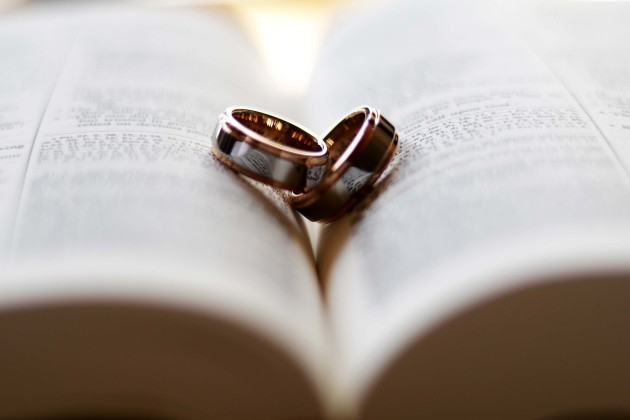Author Archives: Keren McGinity
June 30, 2017 by Keren McGinity
If Jews Are People of the Book, Why Aren’t We Studying Intermarriage?
 Jewish sages teach us: “Carve out a time for learning” (Pirke Avot, 1:15). Jews pride themselves on high rates of post-baccalaureate educational achievement, professional degrees, and the associated prestige and success that go with them. Yet when it comes to Jewish intermarriage and interfaith families, we think personal experience or what we read in the Forward is sufficient intel. The uptick in news coverage about intermarriage and officiation at interfaith nuptials in just the past few weeks, the proposal by LabShul’s Rabbi Amichai Lau-Lavie and related rebuttals, including one by the Conservative movement’s Rabbinical Assembly executive vice president Rabbi Julie Schonfeld, tell us that there is a great need in the Jewish community to fully understand this social phenomenon in a deep and meaningful way. But understanding requires education and education is, unfortunately, socially constructed and gendered.
Jewish sages teach us: “Carve out a time for learning” (Pirke Avot, 1:15). Jews pride themselves on high rates of post-baccalaureate educational achievement, professional degrees, and the associated prestige and success that go with them. Yet when it comes to Jewish intermarriage and interfaith families, we think personal experience or what we read in the Forward is sufficient intel. The uptick in news coverage about intermarriage and officiation at interfaith nuptials in just the past few weeks, the proposal by LabShul’s Rabbi Amichai Lau-Lavie and related rebuttals, including one by the Conservative movement’s Rabbinical Assembly executive vice president Rabbi Julie Schonfeld, tell us that there is a great need in the Jewish community to fully understand this social phenomenon in a deep and meaningful way. But understanding requires education and education is, unfortunately, socially constructed and gendered.
The gendering of Jewish education extends to education about intermarriage. Yehuda Kurtzer, president of the Shalom Hartman Institute of North America, asked in a recent Facebook post what people knew or thought about the relationship between the rabbinate and attitudes towards intermarriage, wondering aloud in cyber space why in his estimation “the loudest anti-intermarriage voices are men.” The query netted dozens of responses, many of them insightful about the role of generation, denomination, sexism, power, misogyny, otherness, conversion, and more, which in turn spawned more replies. According to the 2015 survey of Conservative rabbis by Big Tent Judaism (now closed), more female than male rabbis have attended an interfaith wedding, would officiate if the Rabbinical Assembly changed its policy against doing so, and accept patrilineal descent. This survey, while limited to one denomination and those who participated, suggests that men may outnumber women among anti-intermarriage advocates. Although the question about whether there is a gender bias in the rabbinate about intermarriage is worthwhile, more important for the sake of the Jewish future is to look at who is actually educating themselves (mostly women), and to ask: why?
- No Comments
February 17, 2017 by Keren McGinity
Let’s Stop Romancing the Jewish Womb

Photo Credit: David Lisbona
Born to two Jewish parents, I have enjoyed the privilege of engaging with Judaism in whatever way I see fit. It wasn’t until I took a non-Jewish surname that my Jewish identity was ever truly questioned. Upon learning that I’d married the name McGinity (and kept it after I divorced), people usually shrugged their shoulders as if to say: “Well, you’re still Jewish and your children will be, too.” Wow. If coming out of a Jewish womb is all it takes to be Jewish then perhaps I should identify as a Jew-by-chance. Just as I explain that I was born in Madrid because my parents happened to be living in Spain at the time, my being Jewish and my daughter’s being Jewish seem likewise unintentional. This inadvertent byproduct is the legacy called matrilineal descent.
Jewish women have the advantage, provided they are biologically endowed, with having the right womb. If they intermarry, as many non-Orthodox Jews do today, they can join synagogues where their children will be deemed sufficiently Jewish to become bar or bat mitzvah without any additional measures necessary. Not so for intermarried Jewish men whose wives lack the Jewish womb. Is it any wonder, then, that intermarried Jewish men are currently less likely to raise children to identify as Jewish than are intermarried Jewish women? (It is also worth noting that this fixation around wombs is both cisnormative and heteronormative.)
- 2 Comments
 Please wait...
Please wait...